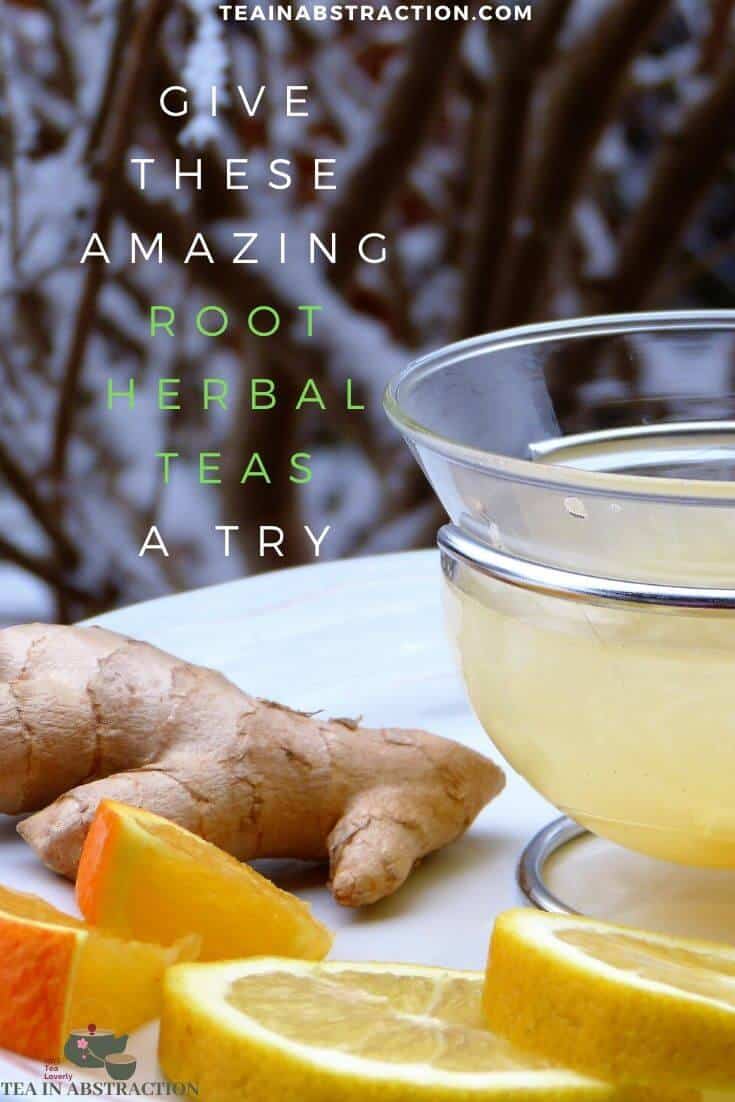*This Article May Contain Affiliate Links* See our Affiliate Disclosure for more Info
When people think of rude herbal teas they often stop at ginseng and Ginger. These two root teas have captured the imagination of the mainstream public but they are only a small part of the world of root teas.
I put together this list of herbal root infusions to show just how many wonderful options there are for herbal tea drinkers.
You might love some of these teas you might hate some of them but it gives you a chance to experience new herbal teas and maybe find your new favorite tea and ceramics in these wonderful root teas. Read on for our look at these amazing root herbal teas. Some of these may not be familiar to you but after trying I think you wonder why it took you so long to experience them.
Looking For Your Next Favorite Tea? Check Out The Great Teas, Blends, and Herbal Infusions at the Art Of Tea. They have teas for every taste and occasion.
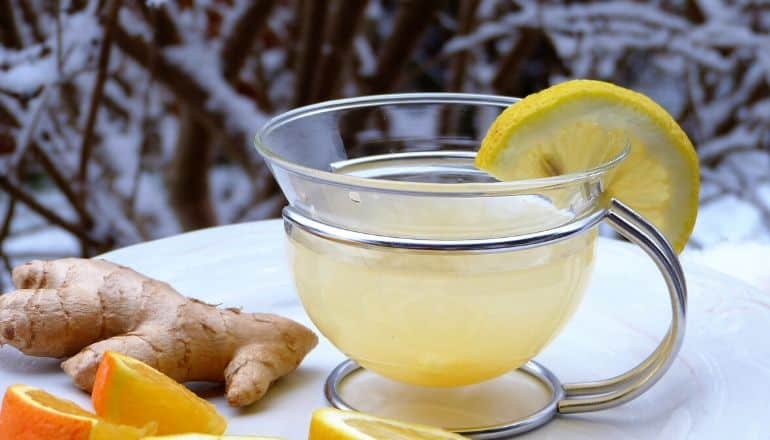
What Are Herbal Root Teas?
Root herbal teas are herbal infusions derived from the roots of various plants. The roots that are used to make these wonderful root herbal infusions come in a variety of shapes and sizes and each has its own unique flavor. You can often find many of these roots in your grocery store produce section. Steeping a piece of fresh root will give you a flavorful and fresh cup of herbal tea. Let’s have a look at these remarkable herbal infusions.
Angelica Root Tea
Our first herbal root tea is Angelica root. Don’t feel bad if you have never heard of it. Angelica root is not the most popular or even widely known herbal tea in terms of mainstream recognition.
But among herbal tea drinkers, this wonderful root tea is well known for its health benefits and its unique flavor profile. Angelica root tea has a bit of a spicy flavor to it. The spiciness gives way to a slightly bitter aftertaste but not overwhelmingly so.
The aroma is a pungent spicy flavor that can liven up just about any room. A pungent aroma is a common theme among root teas. For a great example of angelica root tea check out Frontier Co-op Angelica Root(*affiliate link) available on Amazon
Ashwagandha Root Tea
Ashwagandha Root, or Indian ginseng as it is sometimes called, has long been used to treat ailments over the centuries although very little clinical evidence is available that supports its use(source).
Still, ashwagandha root tea has found its way into many herbal tea drinkers’ repertoire, despite its rough-the-edge flavor. Ashwagandha tea is a pretty bitter herbal infusion with a very earthy, very pungent, almost dirt-like base flavor. It can be a tough tea to drink for people who are new to herbal tea.
Blending it with smoother herbal infusions or teas or adding a bit of honey can help make it more palatable. You can check out my full flavor profile on Ashwagandha Tea right here.
Making a great cup of ashwagandha tea is a pretty straightforward endeavor. For more info on how to make a perfect cup every time, check out my article on how to make ashwagandha tea.
Ashwagandha root tea is popular enough that it can be found in most tea shops both online and offline. While I do normally prefer loose-leaf or fresh-cut root teas I find the bagged versions to be comparable in flavor and a bit more convenient for a quick cup of tea. If you are looking for a great example of Ashwagandha Tea then I recommend Starwest Botanicals Organic Ashwagandha Root(*affiliate link).
Asparagus Root Tea
Asparagus Root Tea has been around for ages but has never really pushed its way into the mainstream consciousness of herbal tea drinkers. The overall flavor of the tea might be one of the reasons. It is definitely an acquired taste.
Asparagus root tea has a very earthy flavor to it. I have always found it to be quite bitter and have a very medicinal aftertaste to it. It is not my favorite root tea, but it does have its merits and its fans who swear by it.
Asparagus root tea is something that you really need to try for yourself to get a feel for whether you will like it. It cannot be done justice by trying to explain it to someone who has never tried it. Asparagus root tea can be pretty difficult to find but you can get a good example of it with TerraVita’s Asparagus Root Tea(*affiliate link), available on Amazon.
Astralagus Root Tea
Compared to many other root herbal teas, astragalus root tea is pretty mild. It still has the tell-tale earthy flavor common to most root teas but it is not nearly as pronounced as it is in many other root herbal infusions.
Another aspect of the flavor of astragalus tea is that is pretty smooth, especially for root tea. There is very little bitterness and not a whole lot of aftertaste. The light flavor and easy drinkability make this a great introductory tea for someone new to root herbal teas.
Astragalus root tea can be found just about anywhere you find herbal teas. It has worked its way into the mainstream enough that finding it should not be much of a problem. I recommend the flavorful Starwest Botanicals Loose Leaf Organic Astragalus Root(*affiliate link) for anyone looking to try this interesting root herbal tea for the first time.
Black Cohosh Root Tea
Black Cohosh root tea is another mild root tea. I would call it bland. There is no real complex flavor to it. It has a slightly earthy base as you would expect from a root tea but after that, it is pretty plain.
However, it does have a ton of anti-oxidants and potential benefits so it is certainly worthwhile to drink a cup every now and then. I recommend blending it with a nice flower herbal tea to get the flavor quotient up a little bit and make it more enjoyable.
It also pairs well with anise seed tea and fennel tea due to their licorice-type flavor that really smooths out the Black Cohosh root tea’s finish. Check out Starwest Botanicals Organic Black Cohosh Root(*affiliate link) for a great example of this root herbal tea.
Burdock Root Tea
Burdock Root has the familiar earthy notes of a root tea but it brings a much more complex flavor profile to the proceedings than some of the other root herbal teas. There is what I would describe as a nutty or seed-like flavor note that complements the earthy tones very well. I find this tea to be very smooth with very little bitterness.
Bitterness in tea is always hard to quantify so what might not seem bitter to me may be incredibly bitter for you. You really have to try it for yourself to get the most accurate picture of any tea but particularly this one.
Butcher Broom Root Tea
Butcher’s Broom Root Tea is another great option for people just getting into drinking root teas. It has a pretty mild nutty flavor and only a slight earthiness and bitterness to it. This makes it a smooth tea to drink. It has a slight sweetness to it as well that gives way to a barely noticeable bitter aftertaste.
I would recommend this root tea to new herbal tea drinkers. It is a good place to get started because it will not overwhelm anyone with its flavor profile. The slight sweetness makes it more palatable to new tea drinkers without having to resort to adding sweeteners. You can find an excellent Organic Loose Butcher’s Broom Root Tea (*affiliate link) at Starwest Botanicals.
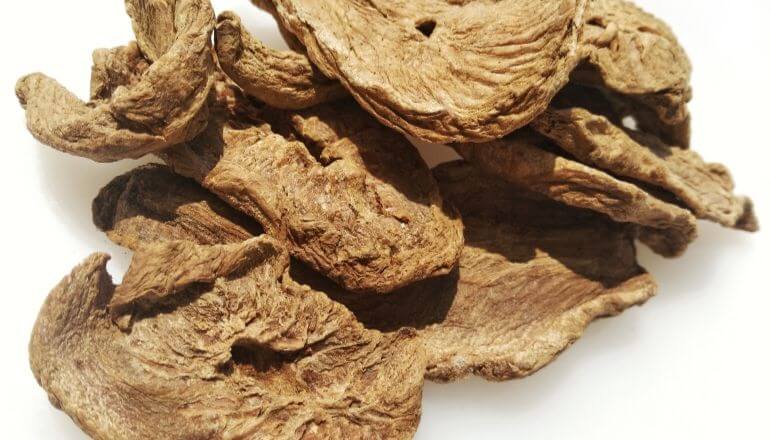
Attribution: Herbeater [CC BY-SA 4.0 (https://creativecommons.org/licenses/by-sa/4.0)]
Chicory Root Tea
Chicory root is often roasted before being infused which gives it more of a coffee-like flavor than the type of taste that one would associate with an herbal tea. I have only had this particular herbal infusion once and that was plenty for me. Not a fan.
But many people like it and love the benefits that this root tea provides. I find it too earthy and although I love coffee I don’t find roasted chicory to taste enough like it to be passable. I do love a peppery flavor but this goes a bit overboard. The peppery flavor is so pronounced that it makes it almost impossible to blend with anything else without overpowering it.
Everyone has a different taste however and many people love this herbal root tea. Give it a try and see where you fall in the debate. Anthony’s Organic Roasted Chicory Root(*affiliate link) is a very good example of this robust herbal infusion. It is available on Amazon.
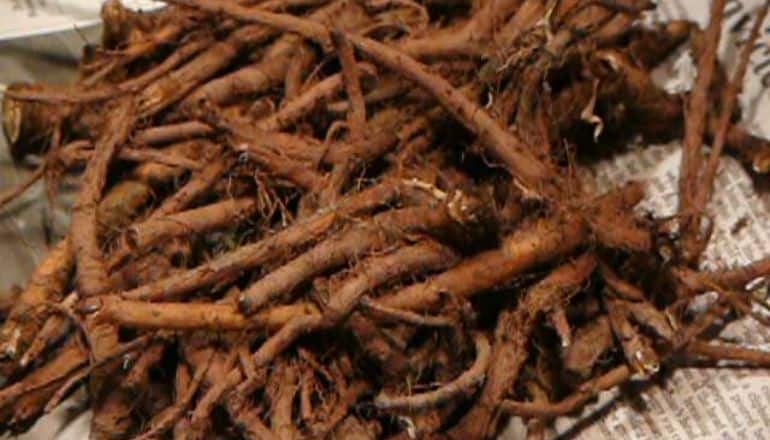
Dandelion Root Tea
Dandelion Root tea, also known as dandelion coffee, is probably one of the more well-known root herbal infusions. This root is usually roasted before being infused in water which gives it a light, delicate flavor similar to that of a mild-tasting coffee more than a tea.
This flavor of this tea is probably why it has become so popular compared to other root teas. The flavor is subtle and not overpowering or excessively bitter and earthy. These traits are too often front and center in many root teas.
The mild flavor makes it more accessible to non-tea drinkers and beginning tea drinkers who just want the benefits without all the hassle.
Many people still add a drop of honey to smooth out the flavor just a bit more but I find it unnecessary and like to drink it with nothing added. Not to be confused with dandelion flower tea, which comes from the same plant but has a different taste.
I prefer Traditional Medicinals Dandelion Leaf & Root(*affiliate link), available on Amazon. They have a great flavor and are very convenient.
Devil’s Claw Root Tea
Devil’s Claw Root tea Is a pretty interesting herbal root tea. The T itself doesn’t really is smell like anything. It doesn’t have a smell at all really. So when you got to drink it you don’t quite know what to expect. But once you get a sip of it you realize that this is indeed a root herbal tea. It has all the telltale signs of a root tea.
It has a pretty bitter taste to it and there’s quite a bit of earthy flavor as well. It is going to be pretty tough for us someone who’s not used to drinking herbal teas to really get into this one. I wouldn’t say it’s bad but it is definitely an acquired taste and something that really lends itself while to blending with another tea.
Ginger is always a great option to blend with it. As is fennel seed tea which gives it a bit of a licorice flavor to help smooth out some of the bitterness. That being said there are a lot of people who enjoy this herbal infusion and don’t mind the extra bitterness.
Usually, a little bit of bitterness doesn’t really bother me too much but with devil’s claw root tea, there’s not much else to fill in the gaps in terms of its flavor. If you are looking to pick up some Devil’s Claw Root, I recommend this Organic Devil’s Claw Root (*affiliate link) from Starwest Botanicals.
Dong Quai Tea
Dong Quai Root tea Is a particularly fragrant root herbal tea. And that fragrance smell carries over into the very interesting and unique flavor of this herbal root tea. There’s a sweetness to it to help balance out the slight bitterness of the tea. There’s also a bit of spiciness that comes through with his tea. It makes it one of the more complex flavor profiles of all the herbal root teas.
In addition to the spicy bittersweetness of the tea, there is a slightly earthy flavor to it which helps ground the overall taste of the tea. In addition to its wonderful flavor Dong Quai Root Tea, Is renowned for all the health benefits that it potentially has.
When you put everything together it becomes one of the most popular root herbal teas and one of the best-tasting root teas in my opinion.
Elecampane Root Tea
Elecampane root tea has a slightly bitter And somewhat earthy flavor to it. However, these are balanced out by their wonderful spicy notes that really warm your entire body when you drink this wonderful herbal tea.
The one thing I will say about this herbal tea is that it is quite strong. regardless of how long you stupid you’re going to get a very robust flavor from this herbal infusion. All the flavors the earthiness in the bitterness and the spiciness are all pretty equal in their strength so you get a nice blend of all those flavors all it wants which makes it a very interesting tea to drink.
It’s not the smoothest tea but it also is not overly bitter or earthy which makes it a pretty drinkable tea one that even knew tea drinkers would enjoy I think as long as they can deal with the spicy undertones.
Even among most herbal tea drinkers, this is not a very well-known herbal tea. In fact, a lot of people have probably never heard of it. There are only a few vendors that make this tea with a teabag and even the loose root teas are a little bit difficult to find.
There aren’t a whole lot of places to get Elecampane root tea in a bag but I like TerraVita’s Organic Elecampane Root Tea Bags (*affiliate link). You can find it on Amazon.
Eleuthero Root Tea
This is another root tea that is not going to top any popularity contest. But once you taste it you might start to wonder why it hasn’t caught one yet. The flavor of this herbal tea is a slightly warming spiciness with a little bit of bitterness on top of a delightfully sweet and earthy base.
Sweet but not sugary. For many people, especially those who drink sugary drinks, the subtle sweetness of this tea might go unappreciated.
But for an experienced tea drinker, this is a wonderful little herbal infusion to try and makes a great tea to blend with other more bitter teas where it can work its sweet magic and make the blend that much more drinkable. Starwest Botanicals Organic Eleuthero Root(*affiliate link) is your best bet for making a cup of this intriguing herbal root tea.
Gentian Root Tea
To call Gentian Root tea a bitter herb tea would be an understatement. It is sometimes considered the king of bitter plants(source). The bitterness is so pervasive that it is detectable in just about any tea blend that you create with Gentian Root. The earthiness and medicinal flavors don’t add to the appeal all that much either.
This becomes a problem if you don’t like the incredible bitterness. Honey or a sweetener is going to help somewhat but even then the bitter flavor seeps through a bit.
This is one of those love-it-or-hate-it teas. You’ll have to figure out which side you fall on after trying out this herbal tea. TerraVita’s Gentian Root Tea Bags (*affiliate link) is the best way to try this herbal root tea. You can find them on Amazon.
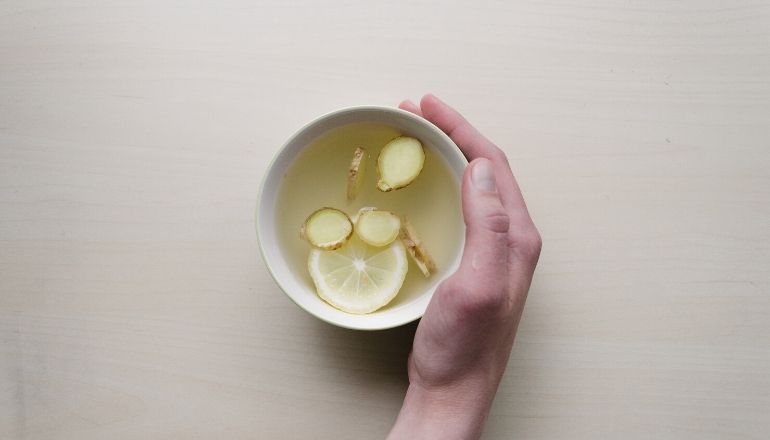
Ginger Root Tea
Ginger root tea is bar far my favorite root tea. In fact, it is one of my favorite teas full stop. The peppery spicy flavor of ginger is so unique and wonderful that I take any excuse I can to make a cup of fresh ginger root tea.
Not only is it fantastic on its own but it is also one of the most blendable herbal infusions to be found anywhere. Add a slice of ginger to a wonderful and delicate Sencha Green tea and you have an entirely new flavor experience.
I am always experimenting with ginger tea blends. A Genmaicha ginger tea was one that turned out better than I had anticipated. The nutty roasted rice made a nice compliment to the sweet vegetable and spicy ginger. I could go on and on. The point is that ginger tea is amazing. Fresh is best but any will do.
If you have never tried ginger tea then you are in for a treat and if you are familiar with it then you already know how wonderful it is. Ginger Root can be found at just about any grocery store. The best way to make it is with a slice of fresh ginger.
If you want a bagged ginger tea then I recommend Culinary Teas Dried Ginger Root (*affiliate link). It is not quite as good as a fresh cup of ginger tea but it runs a close second.
Ginseng Root Tea
Ginseng root tea is probably one of the most recognizable Herbal root teas on our list. Along with ginger and maybe dandelion root, those are probably the most popular in terms of mainstream recognition.
Ginseng is often taken as a supplement in its powder form but it does make quite a good herbal infusion. The flavor does tend to be a little bit bitter but it’s not so bad that it ruins the overall flavor of the tea.
There’s a certain earthiness to ginseng tea as well but again, not an overwhelming one. The bitterness and the earthiness kind of blend together to make a decently drinkable tea. Probably the best thing about Ginseng tea is just how versatile it is when it comes to blending it with other teas. I find most herbal flower teas blend pretty well with Ginseng tea.
Since it’s not overly earthy are overly bitter it does make a nice blending tea for a wide variety of other herbal teas and true teas. Schumacher Ginseng – American Ginseng Root Tea(*affiliate link) is one of the best examples of ginseng tea you are going to find anywhere. It is available on Amazon.
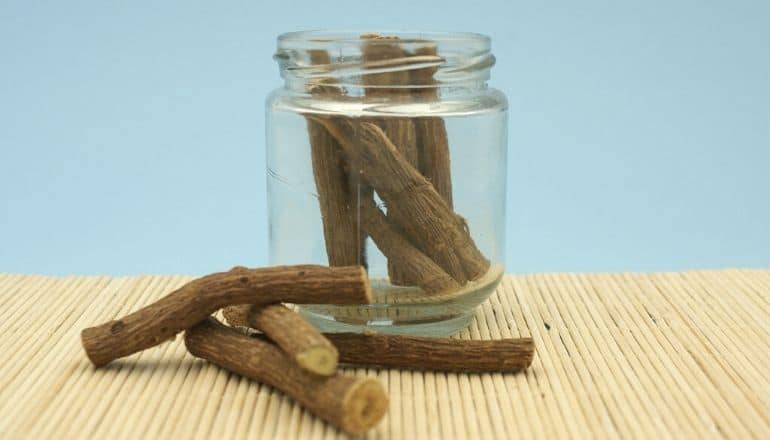
Licorice Root Tea
There are no surprises with licorice root tea. It tastes exactly like you would expect it to taste. Like licorice. In fact, it’s such a common flavor that a lot of other teas get compared to it because they have a slight licorice flavor. Fennel seed has a licorice flavor although somewhat more subdued.
Anise Seed tea is another example of an herbal tea with that tell-tale licorice flavor. So it comes down to this with licorice root tea. Do you like the flavor of licorice? If you do then you’re probably going to love this tea. If you don’t then you are absolutely going to hate it.
There is only the slightest hint of bitterness in licorice tea. I think the most notable flavor that you’re going to taste is the sweetness of licorice tea. There is really no reason to add any sweetener to it. It makes a great tea to blend with other teas because of its natural sweetness.
Licorice tea can cut through the bitterness of most other teas and make a bitter earthy herbal tea that is much more drinkable because of its smoothness of the licorice tea. The one other flavor note that I really think is important to touch on is there’s a tanginess to the tea that really lingers after you sip on it.
When you put it all together it’s one of the most unique flavors that you’re going to find and it’s one of the best teas to use as a blend. Chamomile tea and green tea are particularly great partners for this wonderful herbal root tea. Culinary Teas Organic Licorice Root (*affiliate link) is one of the best around and my go-to for licorice tea.
Maca Tea
Maca Has a somewhat earthy flavor that you might expect from a root herbal tea. Most of the t’s on this list have at least a bit of earthy flavor to them. Most of the time it’s covered up by spiciness or bitterness or some Sweetness. In the case of maca, it is a nutty flavor that really comes to the fore in terms of its flavor.
The problem is there’s not really much more going on with this tea. It’s not bad by any stretch but it’s just kind of a one-note tea. However, a lot of people love it and it has quite a few health benefits associated with drinking this herbal tea(source).
It’s definitely something many of you will want to try and maybe your opinion of it will be different from mine. I am not a huge fan of Maca Tea but Starwest Botanicals Organic Maca Root Powder(*affiliate link) is probably the one I would choose. It only comes in a powder as far as I can tell.
Marshmallow Root Tea
Marshmallow root tea has a distinctive herbal flavor to it. There is a slight bitterness and an earthy undertone but I think the overwhelming flavor is herbal bordering on medicinal. That is unfortunately about all that I can say about marshmallow root tea. There’s just nothing that really stands out other than the herbal flavor of the tea.
It seems like it would make a good tea to blend with other teas because it is so mundane but I don’t know that the flavors would be equal when you did blend it. It’s just so nondescript that I don’t think it could stand up to some really great flavors like licorice or ginger. In which case you would just have ginger tea with a little bit of marshmallow root tea in it.
Which I guess would be okay for the benefits but in terms of flavor, it doesn’t really bring much to the table, In my opinion. Frontier Co-op Organic Marshmallow Root(*affiliate link) is a great place to start for this sweet root herbal tea. You can find it on Amazon.
Sarsaparilla Root Tea
Sarsaparilla root has long been used as a flavoring for a wide variety of things including beverages like soda. And it’s that wonderful flavor that really comes across when you infuse it in water and create a wonderfully sweet root herbal infusion.
With only the slightest hint of bitterness and nice mild earthy flavor, there’s nothing in the way of the Sarsaparilla’s wonderful sweet flavor to come through. It really is one of the best root herbal teas around. And it’s a great one to introduce people who are new to drinking herbal root teas.
The biggest reason for this is that the tea is incredibly smooth with no real aftertaste that I can detect anyway. All these factors make it a very approachable and drinkable herbal tea and one that I highly recommend you try if you haven’t already.
I recommend CELEBRATION HERBALS Organic Sarsaparilla Root(*affiliate link), available on Amazon, for anyone looking to try this wonderfully sweet herbal root tea.
Turmeric (and Ginger) Root Tea
It is actually a little bit tough to find plain turmeric root tea. There are a couple of places to get the loose root but it is much more popular blended with ginger root. This blend is one of the best around. You get the peppery, spicy warmth of the ginger that you can feel all the way to your toes mixed with the slightly sweet and earthy turmeric.
The end result is one incredibly smooth tea that has a wonderful and complex flavor profile that has to be tried to be believed. There is a reason why Turmeric Ginger tea is among the most popular herbal infusions available today.
My favorite Turmeric And Ginger tea is Celestial Seasonings Organics Herbal Tea, Ginger & Turmeric(*affiliate link), available on Amazon. There are plenty of other Turmeric blends to try these days as it has become quite popular.
Valerian Root Tea
I find valerian root tea a little bit tedious if I am honest. People will go on and on about how great it is for you but I am in it for the flavor of the tea. The enjoyment of drinking a complex cup of tea and breaking down each little flavor note.
Valerian tea just does not give me that enjoyment. You could say its just not my cup of tea. I am a bit of a traditionalist when it comes to drinking tea. It tastes like wood chips, dirt, and cough medicine. That may be a bit harsh but that’s the level of enjoyment I get out of it.
My recommendation is to blend it with other herbal teas to make it more palatable if you don’t like the taste. Something relatively strong like ginger root or anise seed can go a long way at making this tea a bit more drinkable.
I don’t drink a lot of Valerian Root tea but I find Frontier Co-op Organic Valerian Root (*affiliate link) to be one of the best around.
Yellow Dock Root Tea
Yellow Dock Tea has a laundry list of potential benefits and it has the medicinal taste to back that up. This is definitely not an everyday tea, in my opinion. I find it bitter and medicinal to a fault. You expect a little bit of earthy bitterness in most root teas but this one really stands out. In addition, it is one of the few root teas that you can ruin by oversteeping.
It only needs a minute or two to get all the flavor and then it tends to get even more bitter making it almost undrinkable. So be careful when you steep and get your root out of the water quickly.
Many people swear by this root herbal infusion for its health benefits and they even like how it tastes. Maybe you will be one of them. Good luck to you. The “best” yellow dock root tea around is TerraVita Yellow Dock Root Tea Bags(*affiliate link).
What To Look For In A Root Herbal Tea
Choosing a root herbal tea is going to be quite a bit of trial and error in order for you to find the perfect ones for you.
The flavors of root teas can be all over the place. From bland to spicy. Mundane to pungent. Finding the right taste for yourself is a personal process and not one that I can really guide you on. However, there are some things to look for when purchasing root teas.
Give You Root Tea A Good Smell
The first thing I do when I get a new bag of tea, whether loose or bagged, is to give it a good smell. You will be amazed at how quickly you can pick up on the quality of your tea just by giving it a quick whiff.
If there is something spilled or wrong with it you will be able to tell pretty quickly and then you can investigate further to determine the problem and get it resolved with the company that you purchased it from.
Check The Quality Of The Root Tea
This applies to loose root teas. Always open the back and examine a few of the root pieces to ensure that they are of good quality. Check for any discoloration that looks odd or out of place and be sure to check for any mold or growths that could be a problem.
Most companies are very good at getting these products to you in great shape. I have never had a problem with any of the companies that I have recommended here today but I still check every bag of root tea thoroughly.
For bag teas, this is less of an issue and another thing that makes them so convenient. But be sure to get your root teas from reputable sources and preferably ones that are organic certified.
Each Root Is Different
Every root that you use to make your root tea is going to have different qualities and characteristics. Experience is the only way to tell what is high quality and what is just average.
As with most things involving tea, a little trial and error are to be expected. But once you find a vendor or brand that constantly comes through with outstanding root teas, you can stick with them confidently knowing that their products always deliver.
The Root Herbal Teas Finish
There are plenty of other root herbal teas out there, but these are the major ones. The ones that you can find with reasonable ease. And they are the ones that I have tried at least once.
I will add new ones as I find and try them but for now, this is as comprehensive a list of root herbal teas as I can make. Just because everything on this list falls under the root tea umbrella doesn’t mean they have a lot in common.
Each one is unique and herbal root infusions are just as varied as flower herbal teas, seed herbal teas, bark herbal teas, or any other category of herbal tea. Hopefully, something on this list inspires you to try it. Inspires you to expand your love of tea in new and interesting directions.
You won’t like all of these root teas, I certainly don’t but maybe you can find one or two new ones that you can integrate into your tea-drinking routine. Think of it as a new leg of your journey through herbal teas. I wish you all the best on that journey.
Thanks for visiting and have a wonderful day.
